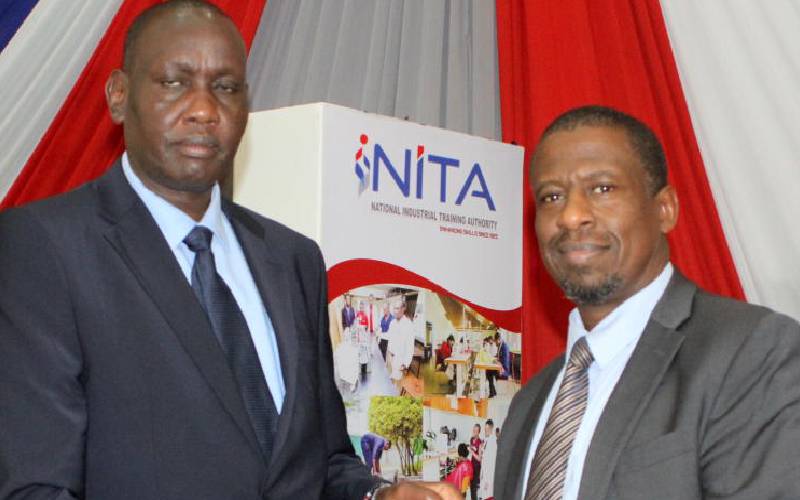
Dr William Kiprono administration Secretary in the Ministry Labour and Social Protection at NITA's five-year strategic plan launch with National Industrial Board chairman Kamau Gachigi in Athi River in October 2018. [File]
The National Industrial Training Authority (NITA) is a State corporation established to power industrial training. The authority has also partnered with the Ministry of Public Service, Youth and Gender Affairs to implement the Kenya Youth Employment and Opportunities Project with support from the World Bank.







